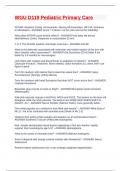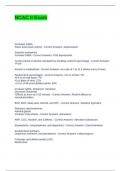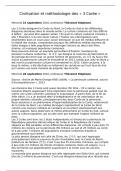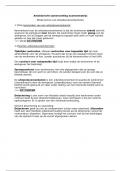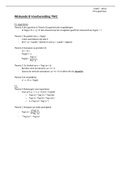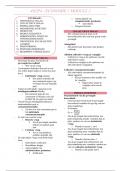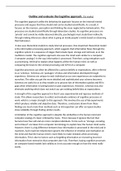Name: Vivianne Ramos
ANR:749071
Course: Premaster HRM
Workgroup: 4
Year: 2020
, Introduction
Employee turnover is a major problem that is recently increasing in the
Netherlands (CBS, 2019). In 2017, 30% of the labor force between 15 and 25 years
old, 14% of the labor force between 25 and 45 years old, and seven percent of the
labor force between 45 and 75 years old had a different job than the year before. This
involved 937.000 people in total (CBS, 2019). In 2019, it involved 1.1 million people,
an increase of 17% (CBS, 2020b). This is alarming, because employees are valuable
assets for organizations and it is currently a difficult challenge for organizations to
keep employees long term (Kossivi, Xu & Kalgora, 2016). Employees leaving their
job take their knowledge and expertise with them, which negatively impacts
organizations and potentially cause financial losses (Bandura & Lyons, 2014). Hence,
it is important to further investigate this.
The last step before employees decide to leave their job is the intention to do
so (Greyling & Stanz, 2010). Gordon, Tang, Day and Adler (2019) investigated
turnover intention and found that supervisor support plays an significant role in
reducing turnover intention. Various research has been conducted on the relationship
between supervisor support and turnover intention in different sectors (Iqbal,
Hongyun, Akthar, Ahmad & Ankomah, 2020; Maertz, Griffith, Campbell & Allen,
2007; Newman, Thanacoody & Hui, 2011). However, to my knowledge, no research
has been performed in the healthcare sector.
The healthcare sector has been struggling with staff shortages for years now
(CBS, 2020a). On the one hand, this is due to the aging of the workforce and, on the
other hand, due to the aging of the population (CBS, 2020a). With the recent health
pandemic, there is an increased pressure on labor to cater to and sustain the handling
of increasing cases of COVID-19. The tremendous pressure on the healthcare sector
means that regular healthcare is scaled-down, and patients’ treatment is postponed
(RIVM, 2020). This is an unwanted situation and may have major social
consequences in the long run.
The purpose of this research is to explore the direct relationship between
supervisor support and turnover intention in the healthcare sector. This research aims
to provide new scientific information on this direct relationship. With the added
pressure of COVID-19 on the healthcare sector, it is becoming more relevant to
investigate the effect of supervisor support on turnover intention. This paper will


